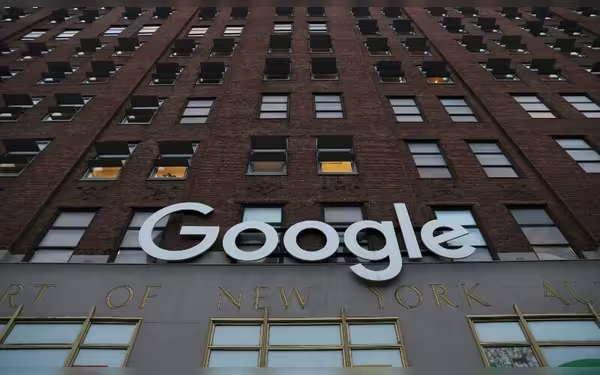Saturday, November 16, 2024 11:42 PM
US Government Considers Breaking Up Google Amid Antitrust Case
- US may compel Google to divest key business parts.
- Justice Department seeks to dismantle Google's online monopoly.
- Smaller competitors support proposed changes to Google’s practices.
 Image Credits: dawn
Image Credits: dawnUS government considers breaking up Google to address antitrust concerns and promote competition in the tech industry.
The ongoing scrutiny of major technology companies has reached a pivotal moment, particularly for Alphabet’s Google. The U.S. government has announced that it may request a judge to compel Google to divest certain parts of its business, including its widely used Chrome browser and the Android operating system. This move comes in light of a recent ruling that found Google to be operating an illegal monopoly in the online search market, where it currently processes a staggering 90 percent of internet searches in the United States.
In August, a judge determined that Google had established an illegal monopoly, prompting the Justice Department to propose remedies that could significantly alter how Americans access information online. These proposed changes aim not only to dismantle Google’s current control over distribution but also to prevent the company from monopolizing future distribution channels. The Justice Department emphasized, "Fully remedying these harms requires not only ending Google’s control of distribution today, but also ensuring Google cannot control the distribution of tomorrow." This statement underscores the urgency of addressing the competitive landscape in the tech industry.
Moreover, the Justice Department is keen on ensuring that Google’s past dominance does not extend into the rapidly evolving field of artificial intelligence (AI). Prosecutors have indicated that they may seek to make Google’s search indexes, data, and models available to competitors, thereby fostering a more competitive environment. Additionally, they might push for restrictions on Google’s agreements that limit access to web content for other AI competitors, allowing websites to opt out of having their content used for training AI models.
Google, however, is not taking these developments lightly. The company plans to appeal the proposed remedies, labeling them as "radical" and asserting that they "go far beyond the specific legal issues in this case." Google argues that its search engine has gained popularity due to its quality and that it faces significant competition from other platforms like Amazon. The company maintains that users have the freedom to choose alternative search engines as their defaults.
As the fourth-largest company globally, with a market capitalization exceeding $2 trillion, Alphabet is under increasing legal pressure from both competitors and antitrust authorities. In a separate ruling, a U.S. judge mandated that Google must open its lucrative Play app store to greater competition, further complicating the company’s legal landscape. The Justice Department is also pursuing a case aimed at breaking up Google’s web advertising business, which adds another layer of complexity to the situation.
In light of these developments, smaller competitors like Yelp and DuckDuckGo have expressed support for some of the Justice Department’s proposals. Yelp, which has previously sued Google over search practices, believes that spinning off Google’s Chrome browser and AI services should be considered. They also advocate for prohibiting Google from favoring its local business pages in search results, which they argue creates an uneven playing field.
As the Justice Department prepares to file a more detailed proposal by November 20, Google will have the opportunity to present its own remedies by December 20. This ongoing legal battle represents a significant moment in the tech industry, as it could reshape the way major companies operate and compete in the digital landscape.
The potential breakup of Google is not just a legal issue; it is a matter that could redefine the future of online search and competition. As the case unfolds, it will be crucial for consumers, businesses, and policymakers to stay informed about the implications of these developments. The outcome may very well influence how we access information and interact with technology in our daily lives.











